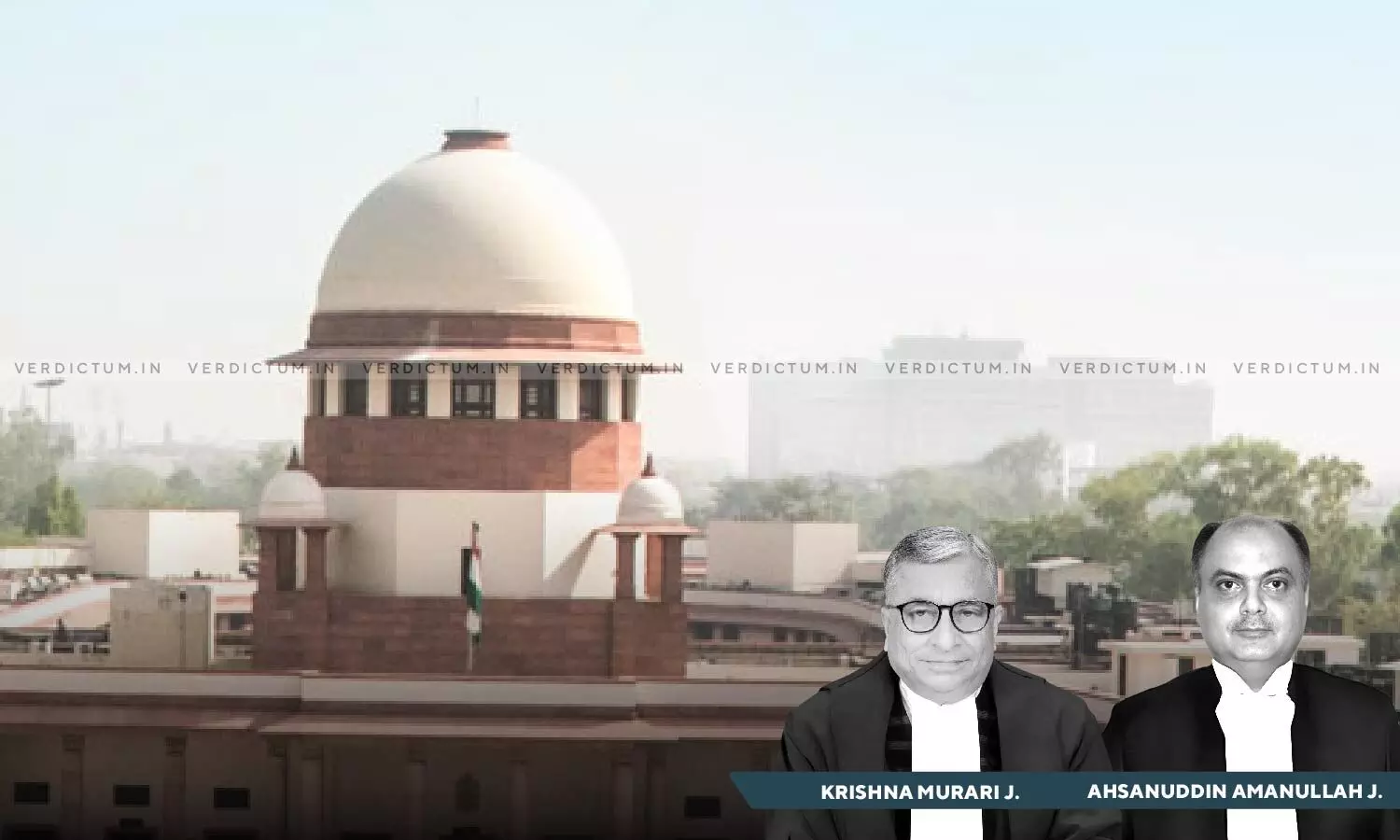
Supreme Court Dismisses Appeal Challenging HC Order Whereby Inspector Was Prima Facie Found Guilty Of Dereliction Of Duty
 |
|The Supreme Court has dismissed the appeal filed against the Madhya Pradesh High Court's Order whereby an Inspector was prima facie found guilty of dereliction of duty.
Finding that as the lapses are grave and the factum that the police authority had itself realized that lapses had crept into the investigation, and decided to initiate proceedings against the Appellant (Police officer), the Supreme Court said that the operative portion of the judgment impugned becomes, merely reiterative, and does not warrant any interference in the extant facts and circumstances involving dereliction of duty by the Appellant.
Noticing callousness on the part of the police officers concerned, including the Appellant, in conducting a proper investigation to bring on record all relevant materials in support of the truth in the present case involving sensitive issues related to offences under POCSO, IPC and SC/ST Act, a Two Judge Bench of Justice Krishna Murari and Justice Ahsanuddin Amanullah observed that “chances of undue benefit accruing to the accused, leading to miscarriage of justice, cannot be ruled out”.
Dharmaprabhas Law Associates appeared for the Appellant, whereas, Advocate Mrinal Gopal Elker appeared for the Respondent.
Going by the background of the case, an FIR was registered against one Shiv Kumar Kushwah (accused) under Sections 376 & 506 of IPC, Sections 3 and 4 of the Protection of Children from Sexual Offences Act, 2012 (POCSO), Sections 3(1)(W)(ii) and 3(2)(V) of the Scheduled Castes and the Scheduled Tribes (Prevention of Atrocities) Act, 1989 and Sections 67 and 67A of the Information Technology Act, 2000. Thereafter, the Forensic Science Laboratory Report (FSL Report) was forwarded to the Appellant for carrying out DNA examination, which was not carried out. In the meantime, the accused sought for bail before the High Court. Since the FSL Report was not submitted, the High Court observed that Appellant was not fit to be assigned any important responsibility in the Police Department. The High Court also directed to take appropriate action against the Appellant for dereliction of duty, insubordination and causing undue disruption in the proceedings.
After considering the submissions, the Apex Court observed that though the Appellant may have a point that, stricto sensu, in a petition under Section 439 of the Code, the concerned Court ought not to travel beyond considering the specific issue viz. whether to grant bail or reject bail to an accused in custody, it cannot be lost sight of that the Court concerned herein was not a ‘Court of Session’ but the High Court for the State of Madhya Pradesh, established under Article 214 of the Constitution.
The Bench went on to observe that though usually the proper course of action of the High Court ought to have been to confine itself to the acceptance/rejection of the prayer for bail made by the accused under Section 439 of the Code.
“However, the High Court, being satisfied that there were, in its opinion, grave lapses on the part of the police/investigative machinery, which may have fatal consequences on the justice delivery system, could not have simply shut its eyes”, added the Bench.
The Apex Court, therefore, elucidated that the Single Bench of the High Court could have directed institution of separate proceedings taking recourse to Article 226 of the Constitution, after formulating reasons and points for consideration, and thereafter, the matter should have been referred to the Chief Justice of the High Court for placing it before an appropriate Bench, which would proceed in accordance with law.
Finding that the Superintendent of Police, who was the officer superior to the Appellant, himself had stated that he would act against the Appellant and was initiating enquiry for imposition of major penalty, which statement was a suo-motu act and not upon or flowing from any direction of the Court, the Bench highlighted that there was no occasion for the High Court to further observe for action against the Appellant to be taken.
Accordingly, the Apex Court dismissed the appeal, but made it clear that any observation by the High Court in relation to the Appellant shall not cause any prejudice to him in the departmental proceedings, which shall take its own course, in accordance with law, and after providing full and effective opportunity to the Appellant.
Cause title: Sanjay Dubey vs. State of Madhya Pradesh and Anr.
Click here to read / download Judgment